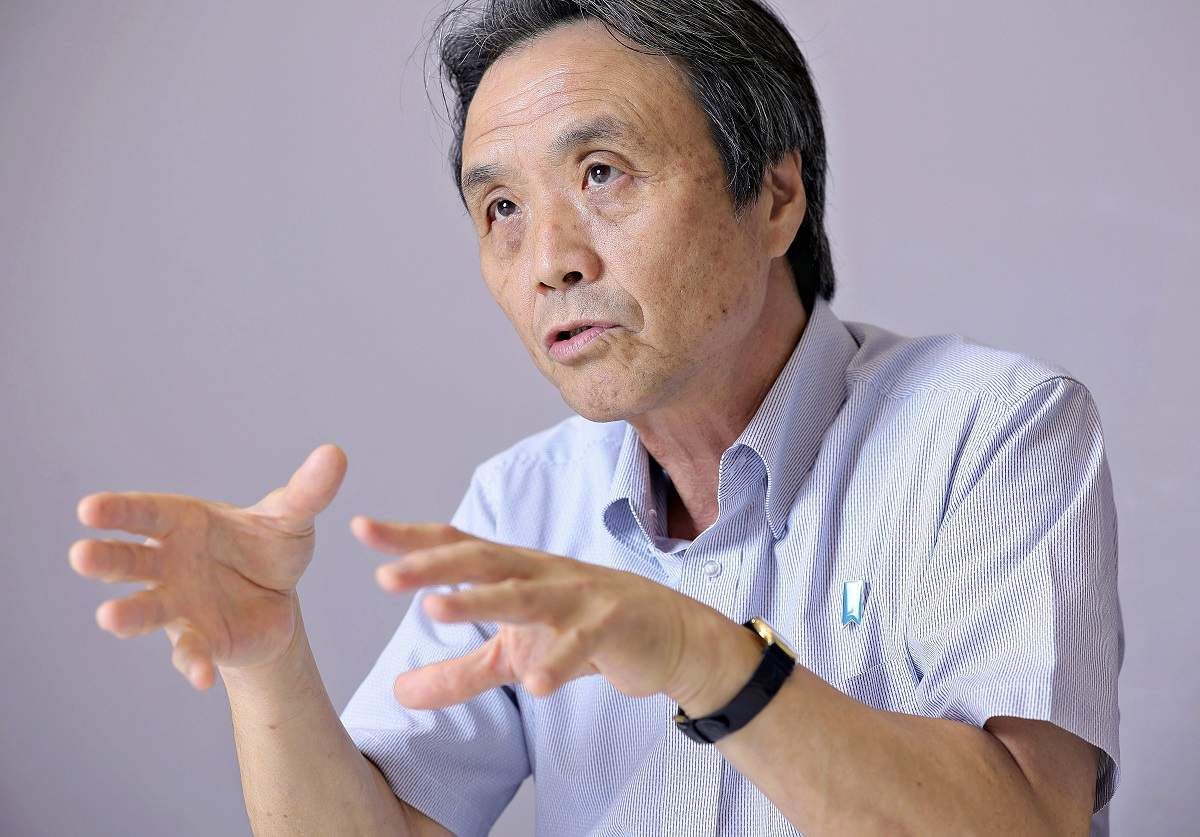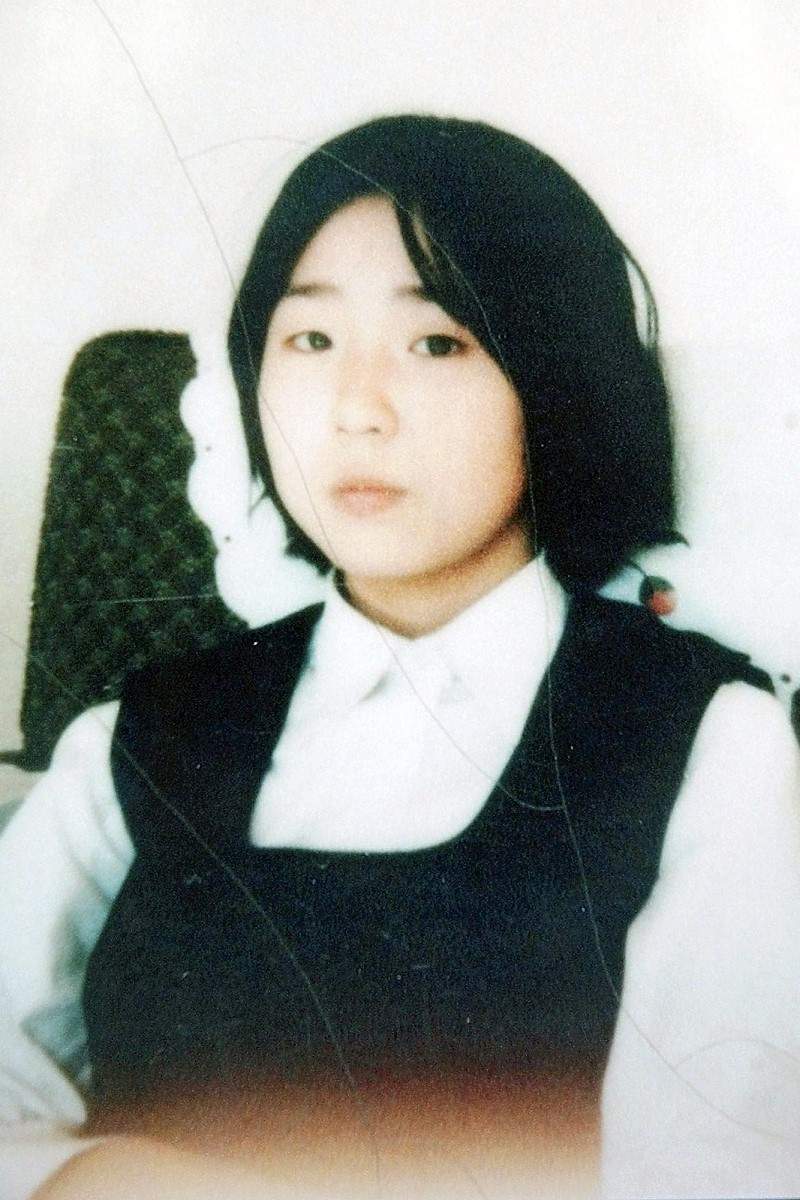North Korean Abductee Megumi Yokota Turns 60 Years Old; Fellow Prisoner Expresses Anger, Regret Over Her Fate

Kaoru Hasuike speaks in an interview in Kashiwazaki, Niigata Prefecture, on Sept. 18
15:41 JST, October 7, 2024
Megumi Yokota, who was abducted by North Korean agents at the age of 13, turned 60 on Saturday. Yokota was kidnapped on her way home from junior high school in Niigata on Nov. 15, 1977.
Kaoru Hasuike, 67, was abducted in 1978 and lived in the same Taeyang-ri district as Yokota for more than seven years under the control of the North Korean authorities. Five abductees returned to Japan in 2002, following a bilateral meeting of Japanese and North Korean leaders in September that year. Hasuike was among them, as was his wife, Yukiko, 68; Yasushi Chimura and his wife, Fukie, both 69; and Hitomi Soga, 65.
Hasuike told The Yomiuri Shimbun in a recent interview about Yokota’s apparent longing to return to Japan, as well as his own anger toward Pyongyang.
‘Guesthouses’
In the autumn of 1986, Yokota moved to a mountain village in the Taeyang-ri district, where houses called “guesthouses” had been built, according to Hasuike. She went there with her husband who had been abducted from South Korea. The Hasuikes and Chimuras were already living in the village, which is more than a dozen kilometers north of the center of Pyongyang.
Yokota gave birth to a daughter, Kim Eun Gyong, the following year.
Hasuike said they were able to move around within the village relatively freely. He remembers Yokota often took a walk with her husband and daughter in a stroller.
The three families often visited each other and ate together, Hasuike said, and the Hasuikes sometimes looked after Eun Gyong. Yokota would bring them sakuramochi rice cakes she had made with rationed ingredients. They also went on a picnic and went swimming together.
However, Yokota escaped from the guesthouse and was twice brought back. She might have been trying to return to Japan, Hasuike said.
In March 1994, Yokota was taken to a “local hospital” by North Korean agent Choe Sun Chol, who was watching her, and others. Choe has been put on an international wanted list over cases including the abduction of the Hasuikes.
Hasuike and the others never saw her again.
“My wife and I were abducted together, but Yokota was taken away from her home alone, and she was only 13 years old at that time. I can only barely imagine how painful it was for her. She must have wanted to see her parents,” Hasuike said.


Left: Megumi Yokota is seen in a school uniform in a photo submitted by North Korea to the Japanese government. It is believed to have been taken immediately after her abduction.
Right: Megumi Yokota, in a photo submitted by North Korea to the Japanese government that is believed to have been taken before her marriage.
Explanation changed
Before Hasuike’s return to Japan, Choe told him, “When you go to Japan, tell them that you heard Yokota had died.” Asked if that was true, Choe said, “That’s what you’re going to say.”
North Korea initially submitted a document to the Japanese government claiming that Yokota had died in March 1993. Hasuike and the other former abductees said after their return to Japan that she had been alive until at least 1994, after which Pyongyang changed its explanation and claimed Yokota had been hospitalized until October 1993 and died in April 1994.
Pyongyang also claimed that Yokota’s husband had cremated her body and kept her remains. But Hasuike said angrily: “Her husband stayed at the guesthouse until 2000, and we were on such good terms that we would discuss anything with each other. I never heard anything about her death.”
“I never saw her remains, either.” Hasuike said.
After his return, Hasuike became an instructor at Niigata Sangyo University in Kashiwazaki, Niigata Prefecture. After working as a special lecturer at the university, he is now a specially appointed professor. Hasuike also is a translator of South Korean books.
“I think North Korea will not let her return to Japan because they think she would not talk about the country the way they want,” Hasuike said. “If she’d returned with us, she still would’ve been in her 30s. I can’t help but feel frustrated when I think about what I could’ve done at the time. I have deep regrets.”
Top Articles in Society
-

Producer Behind Pop Group XG Arrested for Cocaine Possession
-

Man Infected with Measles Reportedly Dined at Restaurant in Tokyo Station
-

Man Infected with Measles May Have Come in Contact with Many People in Tokyo, Went to Store, Restaurant Around When Symptoms Emerged
-

Woman with Measles Visited Hospital in Tokyo Multiple Times Before Being Diagnosed with Disease
-

Australian Woman Dies After Mishap on Ski Lift in Nagano Prefecture
JN ACCESS RANKING
-

Producer Behind Pop Group XG Arrested for Cocaine Possession
-

Japan PM Takaichi’s Cabinet Resigns en Masse
-

Man Infected with Measles Reportedly Dined at Restaurant in Tokyo Station
-

Israeli Ambassador to Japan Speaks about Japan’s Role in the Reconstruction of Gaza
-

Videos Plagiarized, Reposted with False Subtitles Claiming ‘Ryukyu Belongs to China’; Anti-China False Information Also Posted in Japan























